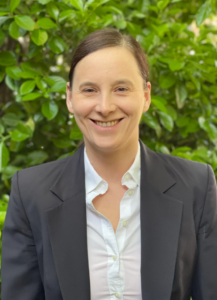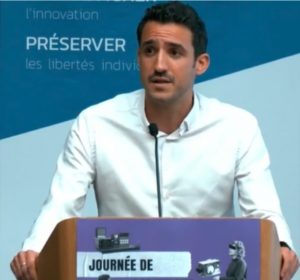The Tech Policy Research and Education Hub Speaker Series brings together leading experts, researchers, policymakers, and industry professionals to explore the most pressing issues at the intersection of technology and policy. From cybersecurity and AI ethics to information integrity and consumer privacy, our speakers provide insights into the challenges and opportunities of technologies shaping the world.
Through thought-provoking discussions, attendees gain a deeper understanding of the evolving tech policy landscape while engaging with influential voices in the field. Join us as we foster critical conversations that drive meaningful change in digital risk governance.
March 12th, 2025: “How can empiricism improve privacy enforcement?”
Date: March 12th, 2025
Time: 1:00pm – 2:30pm EST
Location: Zoom, Register Here!
Abstract
The effectiveness of privacy law is constantly challenged by governmental and corporate strategies. Industries seek to maximize data collection, often at the expense of privacy, and apply minimum privacy safeguards to satisfy legal requirements; Governments collect personal data to achieve control and operational objectives with questionable checks and balances. In contrast, civil society and academics develop tools and produce empirical findings that may improve the regulatory process, but do they have an impact? Our speakers will share insights across US & EU privacy law. They will discuss cases and projects that uncover limits and opportunities for academics to inform regulators. In some settings, empirical findings are clear, but social and organizational obstacles make it difficult to adopt them. In others, there is uncertainty among researchers but a pressing need to regulate market harms. We will discuss the link between privacy research and regulation from a comparative perspective, across US & EU privacy regimes.
Speakers: Aileen Nielsen and Mehdi Arfaoui


Aileen Nielsen is a Visiting Assistant Professor at Harvard Law School, where she teaches privacy law and torts. Her research focuses on the interplay of law and technology, drawing on empirical methods and private law topics. She holds degrees in anthropology, physics, and law. She has written two trade books on machine learning and has also worked in industry as a data scientist. She is a member of the New York bar.
Mehdi Arfaoui is a sociologist at the CNIL’s Digital Innovation Lab (LINC), where his research focuses on the intersection of technology, regulation, and digital practices. A key area of his current work examines the interactions between science and regulation, exploring the dynamic relationship between academic research and regulatory bodies, particularly concerning personal data protection. He is also a research associate at the Centre d’étude des mouvements sociaux (CEMS) of the EHESS, where he carried his PhD thesis. His broader research interests include the modernization of public action, platform work, and the political sociology of data.
February 26th, 2025: “DeepSeek: What does it mean for AI governance?”
Date: February 26th, 2025
Time: 1:00pm – 2:30pm EST
Location: Zoom, Register Here!
Abstract
DeepSeek, the Chinese AI company that develops open-source Large Language Models, is disrupting the market with its low-cost and open models. Broadly, recently developed LLMs challenge U.S. tech giants, disrupt existing business models, raise geopolitical concerns, and resurface an array of AI governance issues. To make sense of recent developments, Dr. Kollnig and Dr. Saund will share insights from their perspectives across Academia and Industry. We will discuss competition, privacy, national security, intellectual property, and AI development from a comparative perspective, bringing in insights from the US, EU, and China.
Speakers: Dr. Carolyn Saund and Dr. Konrad Kollnig


Carolyn Saund is a technical consultant at Keystone Strategy. She received her PhD in Computer Science from University of Glasgow, where her thesis focused on generative AI for social behavior. Prior to receiving her PhD, she was a software and AI engineer at Social Robotic company Jibo, and Emotional AI company Cogito. Carolyn now advises law firms and government agencies to navigate complex cases with a wide range of implications for the future of technology and society. Her work helps legal teams understand the technical intricacies of AI and data management systems, ensure compliance with evolving regulatory frameworks, and support enforcement efforts in the rapidly changing AI landscape.
Konrad Kollnig is Assistant Professor at the Law Faculty of Maastricht University in the Netherlands, and holds a PhD in Computer Science from the University of Oxford. He is funded through a competitive AiNed Fellowship and leads the RegTech4AI project that seeks to prepare the law for the age of AI. His work on Google’s market power in AI was picked up by the U.S. Department of Justice which now seeks a sale of Google’s Chrome browser. In fall, he will release his monograph titled “The App Economy: Making Sense of Platform Power in the Age of AI” that asks: how do Apple and Google use their dominance in the app economy for their bottom line, with what consequences for society, and how to respond?